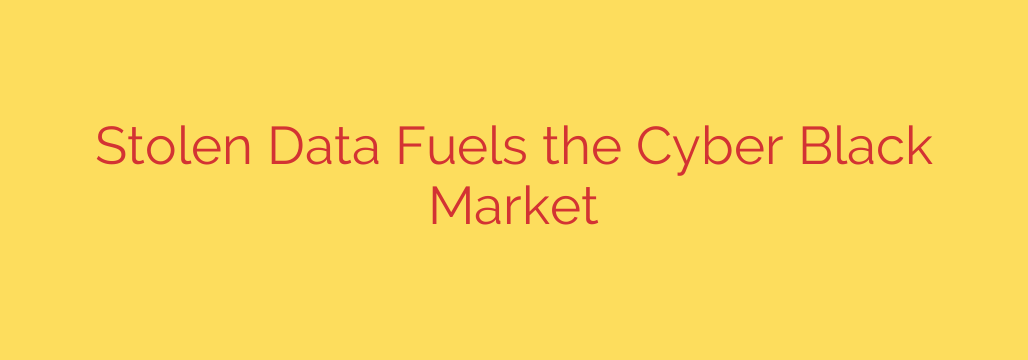
The global landscape of digital security faces a constant threat fueled significantly by the trade in stolen data. This underground economy thrives, acting as a primary driver for many forms of cybercrime. At the heart of this market are vast quantities of sensitive information pilfered through data breaches, phishing scams, malware infections, and other malicious activities.
This illicit marketplace deals in a wide array of valuable digital assets. Personal information, including names, addresses, dates of birth, and social security numbers, is highly sought after for facilitating identity theft. Financial credentials, such as credit card numbers, bank account details, and login information for payment services, are traded for direct fraudulent transactions. Increasingly, other sensitive records like medical histories and corporate intellectual property also fetch high prices.
The value of this compromised data is determined by its completeness and potential for exploitation. Bundles of information enabling full identity takeovers command premium rates. This readily available supply of valuable data significantly lowers the barrier to entry for aspiring cybercriminals, allowing them to purchase the necessary tools and information to launch their own attacks without having to execute the initial breach themselves.
This robust cyber black market provides a lucrative return on investment for threat actors, making data breaches and hacks incredibly profitable endeavors. The continuous demand creates a vicious cycle, incentivizing more attacks to acquire fresh data for sale. Understanding this market is crucial, as it highlights the importance of robust security measures, both for organizations protecting their data and for individuals safeguarding their personal information to disrupt the supply chain that fuels this dangerous trade.
Source: https://www.helpnetsecurity.com/2025/06/12/europol-internet-organised-crime-threat-assessment-iocta-2025/








